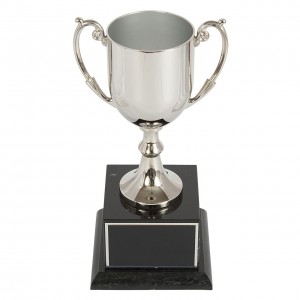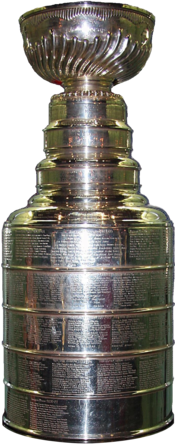Volunteers are people who are willing to work for free, with only the payment of knowing that they’re making a difference in the world. Whether it’s a school, business, government or another community group, many organizations can’t afford to hire the staff they need to get the job done. They rely on trained volunteers to fill the gaps in workload.
 Volunteers may work for free, but that doesn't mean they don't deserve recognition just like any other employee.
Volunteers may work for free, but that doesn't mean they don't deserve recognition just like any other employee.What Motivates Volunteers?
As a former coordinator of over 300 volunteers, and having been a volunteer for various groups for over the past 20 years, I have a lot of experience of what makes volunteers tick.
Volunteers do the work they do because they want to make a difference. They have a vested interest in the work of the organization in order for it to be worthy of their time and effort. For example, Anne and I have been volunteering as Girl Scout leaders together for the past 6 years. We believe what we’re doing is helping grow confident, independent women full of courage and compassion. Since both of our daughters are in the group, we have a vested interest in the outcome of our work. In my former life, I coordinated volunteers who lived on lakes and took water quality samples to track lake health over time. These citizen volunteers had a vested interest in the results of their work as it directly affected their home value, health and quality of life. I find that most volunteers find value in giving their time and often receive more than they give. However, that doesn’t mean that they should be ignored and go unrecognized for their time and effort. Just like any paid employee, volunteers need recognition for a job well done.
How Do You Recognize Volunteers?
Unlike paid employees, volunteers aren't motivated by money. So what's the best way to acknowledge their efforts? Below are some ideas of what I’ve done to recognize volunteers and things I’ve received as a volunteer that has been meaningful to me.
Give meaningful gifts. It doesn’t have to be big or expensive, but volunteers love thoughtful gifts related to the work they do. For example, I’m a Master Gardener and volunteer my time answering gardening questions. For recognition, our leader gave each of us a bouquet of dahlias with a small handwritten note; another year she gave us gardening gloves with a seed packet inside. For girl scouts, one year each leader received an embroidered ‘Girl Scout Leader’ tote bag; another year we received a girl scout mug with themed M&Ms inside. These small gifts were thoughtful gestures with a personal touch that I loved receiving and made me feel valued by the organization.
Host educational events related to the work they do. My lake volunteers were often retired and didn’t need more stuff to add to their overflowing homes. So instead of a gift or award, I offered a yearly recognition event to thank them for their work. One year I had a local meteorologist lecture to my volunteers; another year I organized a private tour of the pristine watershed where our drinking water comes from. Both of these events were related to their volunteer work (water quality) and were well attended by the volunteers.
Feed your volunteers a meal. Host a luncheon or dinner where you invite all of the volunteers in your organization as a thank you. Everyone loves a free meal and a chance to visit with others in the organization.
Recognize extraordinary service at a yearly meeting. If a volunteer has served the organization for a long time, or has gone above or beyond for the group, they deserve special recognition. This recognition is most effective in front of a group of peers, either at a special meeting or at a yearly banquet. An engraved award is an appropriate symbol of this recognition and would be very meaningful. Just as with any other award presentation, be sure to think about what is said about the volunteer recipient, as this moment can make a big impact.
Recognize volunteers in print. At my daughter’s elementary school, all volunteers are listed and thanked both in the weekly school bulletin and the monthly PTA newsletter. Why go to all that effort? Because volunteers like to be acknowledged for the work they’ve done. Be sure to include a thank you and list of volunteers in programs, newsletters, web sites, and other publications.
Ask for and value their feedback. As a volunteer coordinator, each year I would send a survey to my volunteers asking for their feedback of our program. Volunteers have a lot to give besides just their time. They feel valued and appreciated when their suggestions are heard.
Even though most volunteers are donating their time as a labor of love, they still need to be recognized for their efforts. Consider putting some thought into how to appreciate those who give so much without expecting anything in return.
Cheers, Jessica








